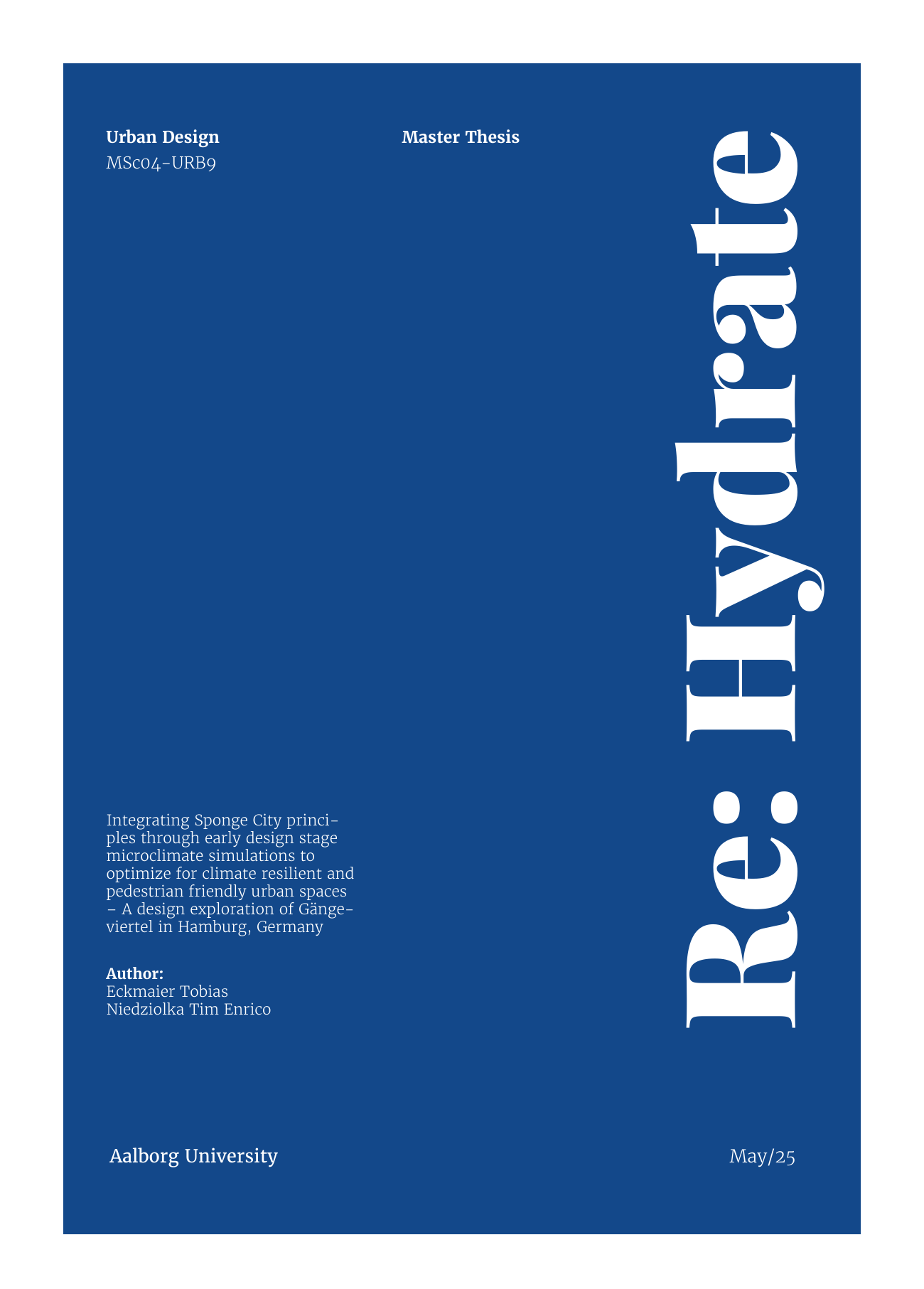
Re: Hydrate | Integrating Sponge City principles through early design stage microclimate simulations to optimize for climate resilient and pedestrian friendly urban spaces - A design exploration of Gängeviertel in Hamburg, Germany: Integrating Sponge City principles through early design stage microclimate simulations to optimize for climate resilient and pedestrian friendly urban spaces – A design exploration of Gängeviertel in Hamburg, Germany
Authors
Term
4. term
Education
Publication year
2025
Submitted on
2025-05-27
Pages
115
Abstract
This project aims to optimize the usage of Sponge City principles and thermal comfort early into the design process, to efficiently transform urban spaces into climate-resilient and user-friendly places. Microclimate simulation and multi-objective optimization for rainwater-management systems are adopted to support the process of decision-making through performance-based standards. Using the dynamic site between the Gängeviertel and Brahmsquartier, this project highlights the complexity of supporting the cultural dynamics of a site, while offering solutions to integrate green infrastructure, water retention systems, and nature-based solutions in a dense urban space. Through a data-driven and iterative process that is based on the Integrated Design Process, this thesis provides a design suggestion that demonstrates how small-scale interventions can contribute meaningfully to city-wide climate resilience goals. Finally, it outlines a transferable framework, the „Sponge City Toolbox“, for application in other dense urban contexts, ultimately acting as a pilot project for the climate-sensitive cities of the future.
This project aims to optimize the usage of Sponge City principles and thermal comfort early into the design process, to efficiently transform urban spaces into climate-resilient and user-friendly places. Microclimate simulation and multi-objective optimization for rainwater-management systems are adopted to support the process of decision-making through performance-based standards. Using the dynamic site between the Gängeviertel and Brahmsquartier, this project highlights the complexity of supporting the cultural dynamics of a site, while offering solutions to integrate green infrastructure, water retention systems, and nature-based solutions in a dense urban space. Through a data-driven and iterative process that is based on the Integrated Design Process, this thesis provides a design suggestion that demonstrates how small-scale interventions can contribute meaningfully to city-wide climate resilience goals. Finally, it outlines a transferable framework, the „Sponge City Toolbox“, for application in other dense urban contexts, ultimately acting as a pilot project for the climate-sensitive cities of the future.
Keywords
Documents
